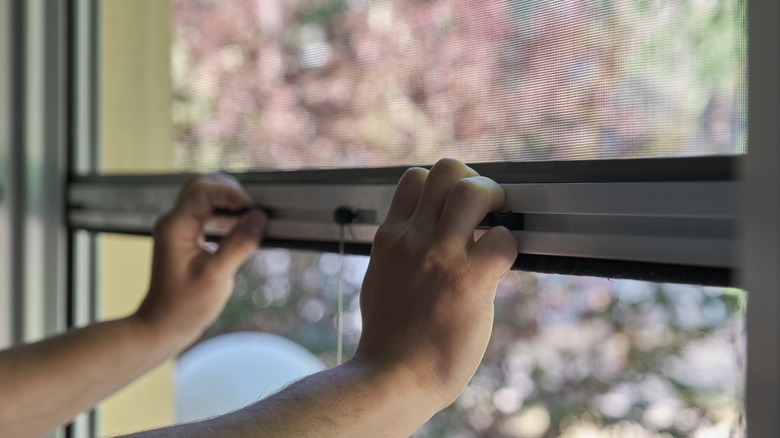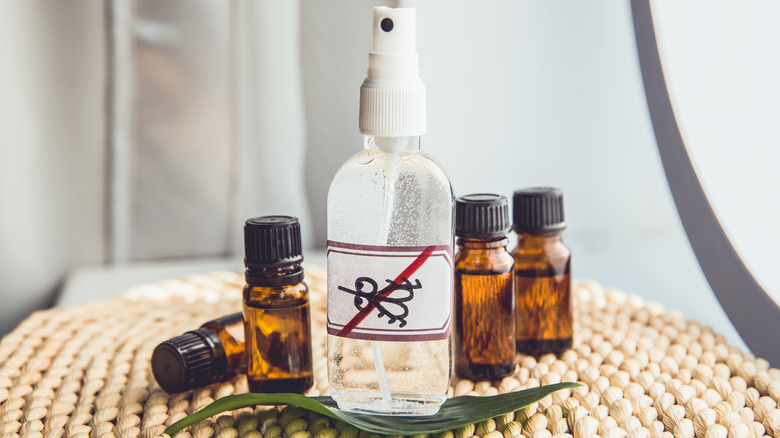One Spot In Your House You're Forgetting To Spray To Keep Bugs Out
Pests in the house can spoil any day, regardless of the type of insects entering. If you've hired a professional for pest control in your home, but you still see bugs creeping in, you might be overlooking a crucial spot: your window screens. You might not realize it, but the small, thin cracks of the window screen are just the size for a grand bug entrance. If your screens are a little worn or have holes, it makes it easier for pests to enter your home. A little insect spray applied on your screen is like putting up a No Vacancy sign, turning away bugs who hate the scent of spray.
Spraying window screens with insect repellent is an easy way to prevent bugs like no-see-ums, gnats, and flies from getting in your home and deter larger bugs from trying as well. Window experts Beissel Window & Siding explain that bugs can slide in easily in cracks as thin as a credit card, so proactive moves like spraying your screen with insect repellent can help. Here's how to do it and what to know.
Using pest control spray on screens
Treating your window screens to keep out insects is easy. Just use your favorite insect repellent and spray only the outside of the screen, then repeat as needed. Humidity and rain dilute bug sprays, so be prepared to reapply often, depending on the weather. If using a bug spray with DEET (Diethyltoluamide), be careful not to breathe in the spray or get it in your eyes, as this can cause irritation. After using any pest control spray, thoroughly wash your hands and change your clothes to reduce your exposure to the chemicals.
You will want to take precautions when you spray your screens, particularly if you have pets who often spend time in front of the window. Take care that you don't let them near the window screen immediately after you spray and never spray DEET-based insect repellent around them, as DEET can be harmful to pets. If you have pets or are sensitive to bug spray, you can try various natural remedies to detract pests from your window screens.
Natural options for pests on window screens
You have multiple options for all-natural treatments for your window screens. A peppermint oil mixture can repel gnats and other pests away from your home. Combine 12-15 drops of oil with 1 cup of water and 1 teaspoon of dish soap in a spray bottle, shake well, then spray on the screens as needed. You can also follow the same recipe with basil, spearmint, or lavender oil to repel pests instead, which emit smells insects find unappealing.
If you have pets, essential oils can be dangerous if inhaled, ingested, or swallowed by your curious furry friend. As a result, you may want to add plants and herbs that keep insects away in a window box or not far from your home's exterior. Pet-safe options that bugs hate include basil and lemon balm. However, one of the best options for planting is catnip. Not only does your feline friend get to enjoy a little ecstasy from the 'nip, but you can repel cockroaches, mosquitos, and other creepies with the herb, as researchers find catnip is 10 times more effective than DEET.


